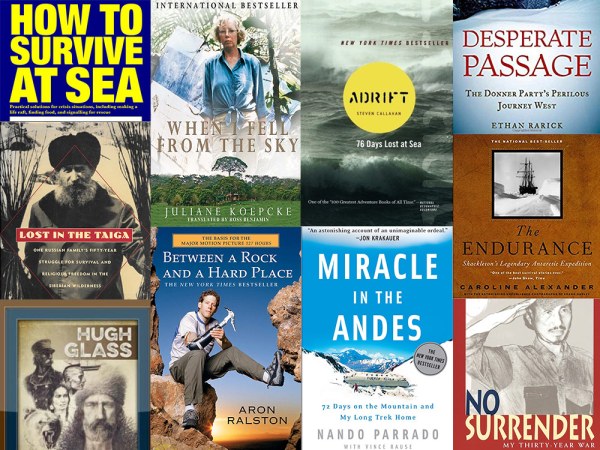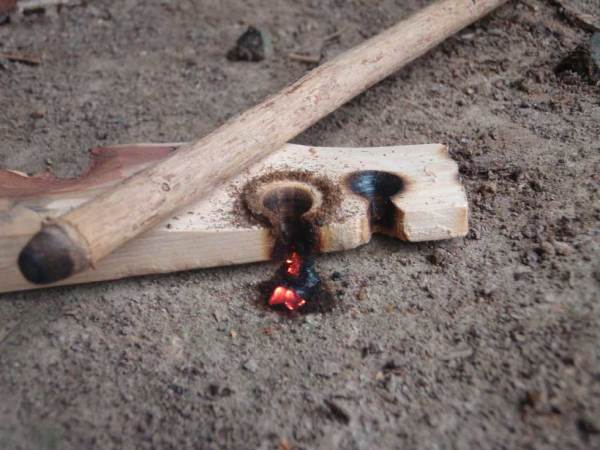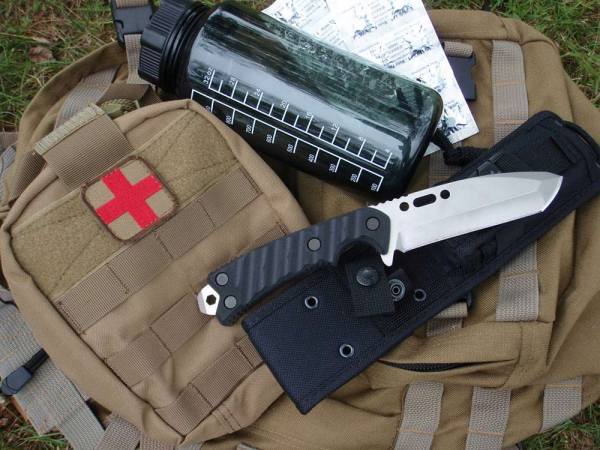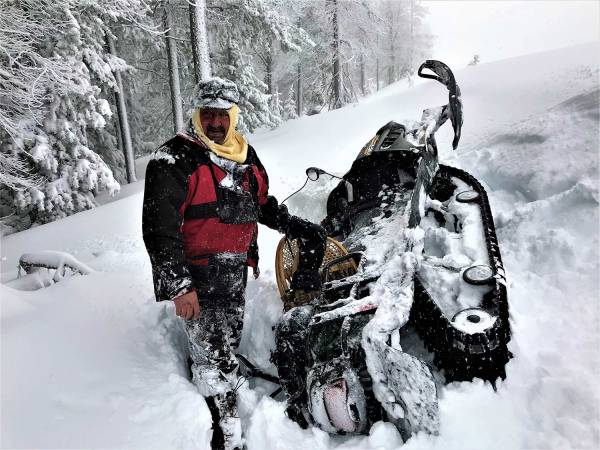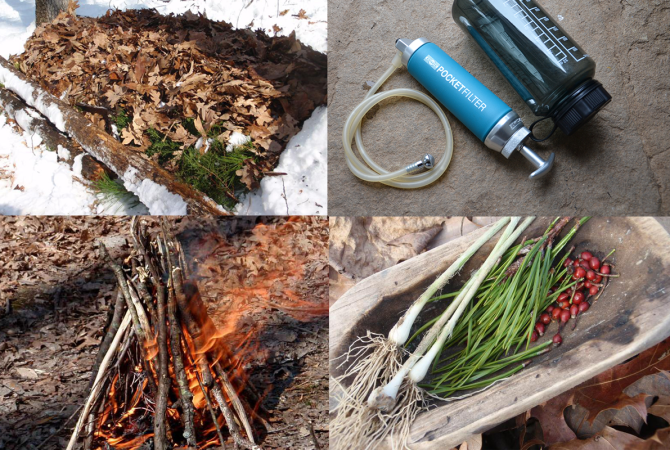If you’d only listened to that sage advice about the “buddy system” and taken a friend with you on your wilderness adventure…
This is just one of the “shoulda, coulda, woulda” thoughts that can go through the mind of a person stranded by themselves in a wilderness emergency. While we all could use some alone time once in a while, a remote wild area may not be the safest place to seek solitude. But if you do venture out alone and wind up in a jam, here are some solo survival techniques that just might save your bacon.
1. Keep Your Guard Up
If the hunting and gathering are going great, there’s a strong chance that you’re not the apex of the food chain in such a fertile place. Wilderness areas with abundant natural resources are often abundant with predators. Being caught alone in a place like that means that you have no “strength in numbers” to dissuade the larger predatory creatures. To make sure you don’t end up on the menu yourself, don’t let your guard down, create improvised weapons (if you didn’t bring any), and keep a fire going to discourage potential man-eaters from visiting your camp.
2. Save Your Sanity
For a person stranded alone, one of the hardest survival issues may be maintaining good mental health. Mental failures should not be surprising, as few people fare well in isolation. We may crave a little solitude from time to time, but it’s occasional and voluntary. A long term solo survival experience is neither. These conditions are likely to erode the mental and emotional wellbeing of the survivor, and cause them to become enormously disturbed. Maintain some semblance of good mental health by finding a higher meaning in your predicament, by anthropomorphizing inanimate objects (talking to your friend the volleyball, for instance), and by thinking of wild animals as your companions.
3. Do Something Useful
The vast amount of alone time without a known conclusion can rattle the average survivor. And since idle hands are the devil’s workshop, it makes sense to find practical uses for your hours. You certainly don’t want to waste time and precious calories on busy work that has no reward, but you can use your time and energy on tasks that improve your situation. Set up a trap line for more food, set out more signals to increase the odds of rescue, remodel your shelter to make it safer and more effective. Use your imagination and be creative as you make things that assist your survival. You may not be able to whip up a coconut radio like the Professor did on Gilligan’s Island, but you can certainly find ways to make your ordeal more tolerable.
4. Plan For The Future
For a great morale booster, take some time out to consider the future. In some cases, all it took was the idea of something they would do after being rescued to give a survivor the will to keep fighting. People who were starving have made detailed menus of the first meal they plan to eat. Lost family members have daydreamed about their reunion. Make plans for the reward at the end of the journey, and it can help you push through the trials along the way.
5. Pick Your Battles
Perhaps the most difficult part of a solo survival experience is the crushing work load. You chores never seem to end when you are providing for all of your own necessities. The days become a constant struggle to look for food, process water to make it safe, gather firewood, avoid hazards, enhance shelters, and signal for rescue. All of this labor wears a person out. To prevent fatigue, try to work as efficiently as possible and multi-task when it’s practical. If you have the luxury of picking your battles, pick the ones that you need to win and are able to win.
Tell us what you would do—or have done—in a solo survival scenario by leaving a comment.


